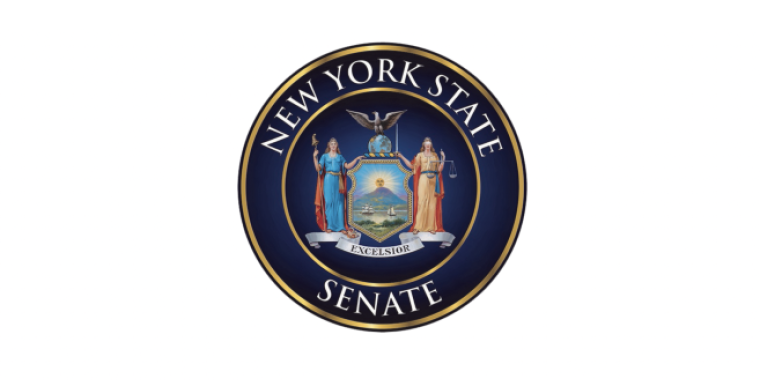
Testimony of State Senator Liz Krueger Before the New York City Council Committee on Housing and Buildings Regarding Intro 404 to Increase the Fines Levels for Illegal Hotel Violations
Liz Krueger
December 13, 2011
My name is Liz Krueger and I represent the 26th Senate District, which includes the East Side and Midtown areas of Manhattan. I want to thank Chairperson Erik Martin Dilan and the members of the City Council Housing and Buildings Committee for providing me with the opportunity to testify today in support of Intro 404, which I believe is a critically important piece of legislation.
The proliferation of illegal hotel operations has removed thousands of affordable apartments from an already tight housing market, disrupted the lives countless permanent residents who live in the buildings where the illegal hotels are operating, decreased the revenue the City receives from hotel taxes, and ruined many tourists’ visits in New York. The internet has made it easier than ever to advertise illegal hotels, which are residential units that are designated under the New York State Multiple Dwelling Law and City zoning rules as permanent residences but are improperly used as transient hotel rooms. Even a brief search of the internet reveals hundreds of advertisements for illegal hotels. Housing advocates estimate that there are many thousands of these units being operated in more than 300 buildings across New York City, primarily in Manhattan and North Brooklyn but increasingly in other areas as well. Building owners and third party managers convert residential units, the majority of which are located in buildings with rent-regulated and Single Room Occupancy tenants, into illegal hotel units in order to make more money on the apartments than the law allows.
Permanent residents living in buildings with illegal hotels regularly report significant increases in noise, harassment and crime, and decreases in building-wide services. Residents are frequently extremely concerned that the safety of their buildings is undermined by strangers coming and going from their buildings at all hours. Because illegal hotels do not comply with applicable fire and safety laws that are required for buildings used for transient occupants, they pose a serious threat to the safety of building residents, tourists, and any first responders who are called in to deal with emergencies. Tourists who sign up to stay in illegal hotels through various websites are generally not aware that the units do not conform to fire and building safety standards, and are often distressed to find that their accommodations are cramped, illegal, and do not provide hotel services. When tourists have bad experiences in illegal hotels, New York City’s international reputation as a tourist and business destination is harmed. In fact, just this week my office received a complaint from a visitor from Virginia who paid more than $2,500 to stay in what turned out to be an unsanitary and unsafe illegal hotel unit that she found via the internet this past summer.
I have been working to understand and address the problems caused by the exponential growth of the illegal hotel industry ever since I started receiving large number of complaints from constituents in my district office more than six years ago. After discovering that many of my colleagues in the City Council and State Legislature were receiving similar complaints from their constituents, I, along with City Councilmember Gale Brewer and Assemblymember Dick Gottfried, formed an Illegal Hotel Taskforce which grew to include dozens of City and State elected officials, neighborhood organizations, and housing advocates. Over the next few years, the Taskforce held countless meetings with City and State agencies and hosted multiple town hall meetings across the City with hundreds of residents directly affected by illegal hotels operating in their buildings. These meetings enabled us to fully grasp the scope of the problem, determine why enforcement was so difficult, and figure out what legislative and/or regulatory changes were necessary.
Throughout this process the City’s Office of Special Enforcement (OSE), along with the City Departments of Buildings and Housing Preservation and Development, provided invaluable input on what prevented City agencies from cracking down on illegal hotels and the types of legislative changes that would be necessary to empower the agencies to conduct effective enforcement. Two sets of problems were ultimately identified as those which needed to be remedied through legislation:
there were conflicting definitions of the term “permanent residence” in various City and State laws, and there was a lack of clarity surrounding the number of units that had to be rented out on a transient basis in a building for a violation to exist
the maximum fine that can be assessed for illegal hotel violations is $800 regardless of the time and number of units being rented illegally, an amount so low that it is easily written off as a cost of doing business and so is not a deterrent to illegal activity.
In order to eliminate the first set of hindrances to the ability of the City’s enforcement agencies to address illegal hotel operations, Assemblymember Gottfried and I introduced legislation (S.6873-B/A.10008-B of 2010) to clarify the ambiguities in the State Multiple Dwelling Law and the City Administrative Code. The bill, which was drafted with significant assistance from the City’s enforcement agencies and was strongly supported by Mayor Bloomberg, created a single definition of “permanent residency,” made it clear that all Class A multiple dwelling units must be rented by a person or household for 30 consecutive days or longer, and established that renting even a single Class A unit in a residential building for less than 30 days is illegal. After receiving strong support from City Councilmember Christine Quinn and other members of the City Council, Manhattan Borough President Scott Stringer, the New York Times editorial page, the Commissioner of the New York Fire Department, multiple tenant organizations, the Hotel Association of New York City, and the New York Hotel and Motel Trades Council, the bill was passed by the Senate and Assembly and signed into law by Governor David Paterson at the end of the 2010 legislative session. In the first month after the law went into effect on May 1, 2011, the OSE took action against 15 residential locations that were illegally converted into unsafe hotels. The OSE found conditions at eight of these locations which were so imminently dangerous conditions that the agency issued full or partial vacate orders on the buildings.
The new State law removed many of the legal obstacles that prevented action against illegal hotels, and I believe that the City’s OSE and other agencies are fully committed to cracking down on illegal operators. However, as long as the potential fines remain negligible, the City’s enforcement agencies and Environmental Control Board (ECB) will not have the tools they need to permanently shut down existing illegal hotel operators or prevent others from opening. The passage of Intro 404 into law would finally ensure that the City has the ability to issue penalties to illegal hotel operators that are truly meaningful, and which will serve as real deterrents to those considering entering the illegal hotel business.
Intro 404 would significantly increase the fines the City can levy for the illegal conversion of permanent residential units in multiple dwellings into illegal hotel units by categorizing the conversion of more than one unit in a building, or a subsequent violation in a unit in the same building, as “immediately hazardous violations” under the City’s Building Code. Adding illegal hotel violations to the list of 15 violations considered “immediately hazardous”-- a list which currently includes such violations as unlawful demolition and disobeying a stop work order--would clearly signal the level of danger posed by illegal hotels. Classifying illegal hotel violations as “immediately hazardous” would also dramatically increase the fines that the ECB could impose from the current maximum of $800 per violation to between $1,000 and $25,000 per violation (with the exact amount to be determined in each case by the ECB administrative law judge), plus an additional $1,000 daily penalty for each day a violation is not corrected. Given the fact that many illegal hotel operators charge hundreds of dollars a night for units that could only be legally rented for a tiny fraction of that amount, it is absolutely critical for the ECB to have the power to impose substantial monetary penalties. While an illegal hotel operator who is earning $200 a night for an apartment that can be legally rented for $1,200 per month can easily write off an $800 fine as the cost of doing business, the threat of a $25,000 fine that escalates at $1,000 per day dramatically changes the economic reality for illegal hotel operators. The threat of such significant fines would finally provide real leverage to the City’s enforcement agencies and also serve as a deterrent to those currently considering entering the illegal hotel industry.
New York City’s enforcement agencies need the tools provided by Intro 404 in order to effectively crack down on illegal hotel operations that are endangering public safety, taking desperately needed affordable apartments away from residents, and reducing tax revenue. I strongly urge the City Council to enact Intro 404 as quickly as possible.



